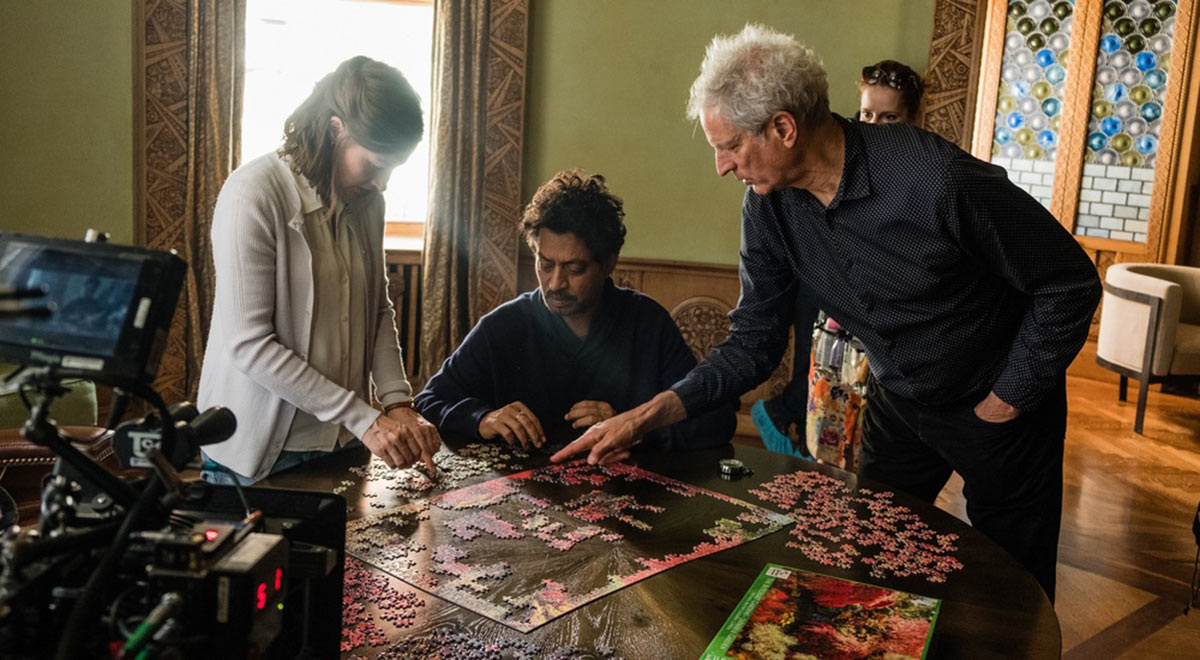Kelly Macdonald was waiting tables at 19 when a friend showed her a flier that read, “The makers of ‘Shallow Grave‘ are looking for a girl between 16 and 21 to play a charismatic schoolgirl.” Despite her parents not taking the craft of acting seriously, Macdonald heeded Danny Boyle‘s “cattle call.” The role was that of the iconic Diane in the cult classic “Trainspotting.” Today, 22 years later, Macdonald has accumulated an incredible filmography. Still, other than playing the lead in the small, independent film “Stella Does Tricks,” Macdonald had yet to find a leading role worthy of her talent until she read the script for Marc Turtletaub‘s “Puzzle.”
In only one previous film, producer-turned-director Turtletaub has proven himself a deft filmmaker, embracing the collaborative aspects of filmmaking, executing his vision, yet knowing exactly when to take a laissez-faire approach. As a producer, Turtletaub’s career hit the ground running with “Little Miss Sunshine,” and has continued to impress. He then successfully ventured into directing with his feature directorial and screenwriting debut “Gods Behaving Badly” in 2013. After painstakingly searching for his next project over the next few years, he would eventually choose “Puzzle” as his sophomoric directorial feature.
Based on a script by Oren Moverman and Polly Mann and adapted from Argentinian filmmaker Natalia Smirnoff‘s “Rompecabezas,” “Puzzle” chronicles Agnes (Macdonald), a bored, undervalued housewife whose newfound passion for solving jigsaw puzzles leads her to a path of romance and self-discovery. Macdonald is nothing short of spectacular in the film.
On the verge of “Puzzle‘s” U.S. release, I had the privilege of sitting down with Macdonald and Turtletaub to discuss their new film, its themes, their careers, and more.
Kelly, you’ve been acting for over two decades, yet, between Agnes in “Puzzle” and the titular role in “Stella Does Tricks” in 1996, it seems like you should have more leading roles given of your talent level.
Kelly: Well, who do you talk to about these things? Is there a big boss-man or woman?
I wonder the same thing. Having received both, which do you prefer, character actor or lead actor parts?
Kelly: I don’t think about it, to be honest. If I respond to a script, then I don’t do a word count. I’m not bothered by what number I am on a call sheet. It’s not the thing that I sort of think about at all. And what is so [great] in this film, is what I see in almost every other film, if you’re lucky enough to do, is the great ensemble, the cast I got to work with. And I felt very much a part of a group. And it’s definitely a group effort. But I was number one on the call sheet [laughter].
Marc, when did you approach Kelly with the project?
Marc: As soon as I committed to directing it, I thought of Kelly. And she’s heard me say this before, but I have loved Kelly as an actor for quite a while. For me, it was interesting. I kind of had forgotten some of her earlier work – I’m sorry. And then, when I saw “The Girl in the Cafe,” I was just so blown away. And then just began to connect the dots backward.
But also, then, “No Country For Old Men” and “Boardwalk Empire,” and as you begin to connect those dots, you realize the versatility she has as an actor. And so, I wanted to work with her, and you have to have the right project. And then this came across my desk, and I needed to talk to her.
Kelly: And I also knew Wren Arthur, the producer, and she worked and was great friends with Robert Altman, and so I had met her. So, there’s a funny connection there, as well.
Marc: Wren’s also the person who sent me the script.
Kelly, “Puzzle” is a film that is worthy of your range as an actor. You’re in almost every frame. Aside from the size of the role, what stood out to you about Oren Moverman and Polly Mann’s script when you read it?
Kelly: It just was utterly compelling, I found, and I wanted to just follow this character and see where she ends up. And it felt almost like a play, as well. It felt like it could have been a play, too. The characters were very well-drawn, and it was just all there.
Marc: The dialogue is really strong, much like a play.





